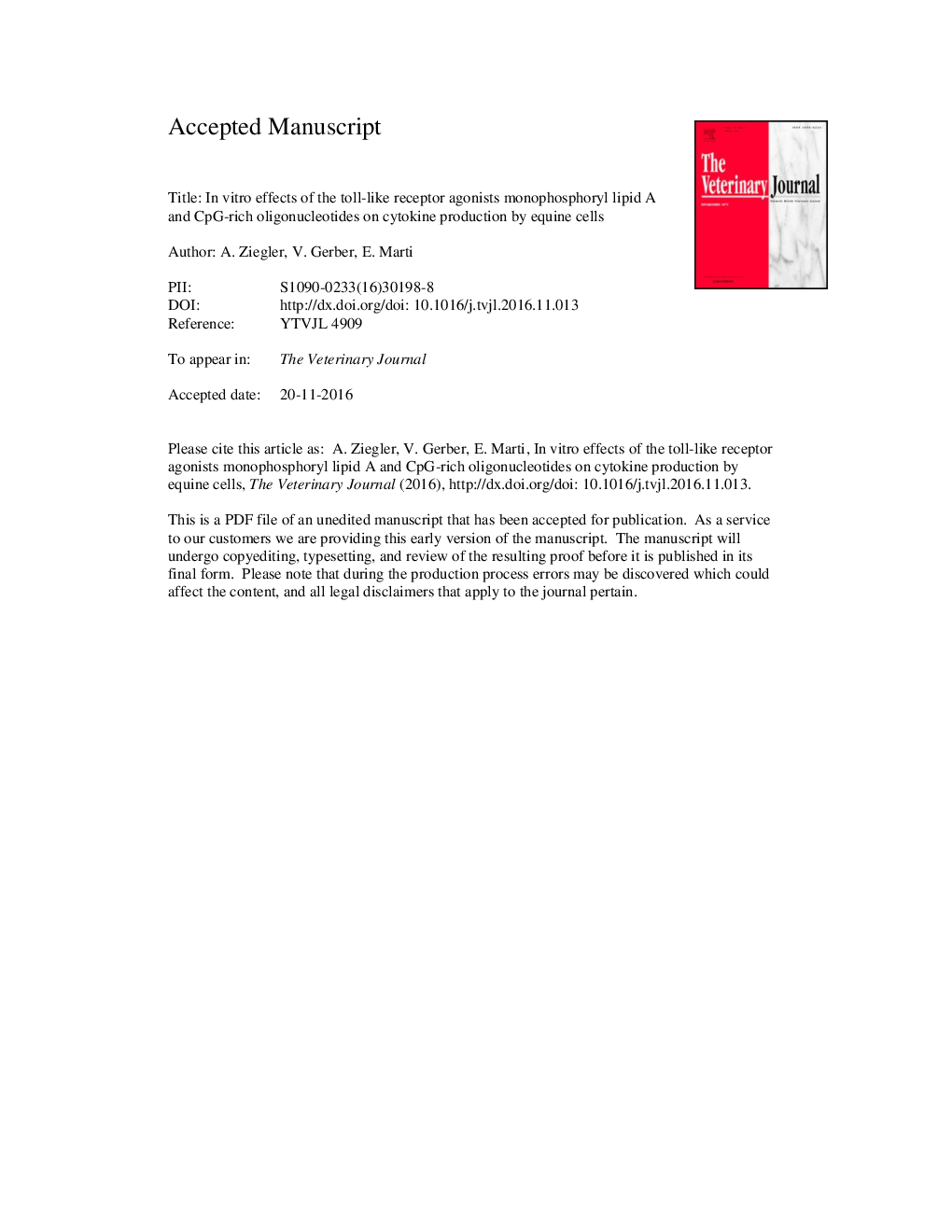| Article ID | Journal | Published Year | Pages | File Type |
|---|---|---|---|---|
| 5545020 | The Veterinary Journal | 2017 | 21 Pages |
Abstract
Insect bite hypersensitivity (IBH) is an equine allergic dermatitis to Culicoides spp. antigens. Attempts at using allergen-specific immunotherapy (AIT) as a treatment for IBH have so far proven unsuccessful. Toll-like receptor (TLR) agonists can promote a shift in the immune response from the allergy-promoting T helper cell 2 (Th2) response towards a Th1 and/or regulatory response. The aim of this study was to evaluate two immunomodulatory TLR agonists in vitro as potential vaccine adjuvants for a more efficacious AIT in IBH. Peripheral blood mononuclear cells (PBMCs) from healthy and IBH-affected horses were stimulated with the TLR-agonists monophosphoryl lipid A (MPLA) or CpG-rich oligodeoxynucleotides (CpG-ODN) in the presence or absence of Culicoides spp. allergens. Cytokine concentrations of interferon (IFN)-α, IFN-γ, interleukin (IL)-4, IL-10 and IL-17 were quantified in the supernatants of stimulated PBMCs. MPLA induced IL-10 secretion in all horses, regardless of presence and nature of antigens, while suppressing antigen-induced production of IFN-γ, IL-4 and IL-17. CpG-ODN significantly increased IFN-α, IFN-γ and IL-4 production, but had little effect on IL-10 production. In conclusion, MPLA promotes a regulatory immune response and is therefore a promising adjuvant candidate for allergy vaccines in horses. While C-class CpG-ODN is an unsuitable adjuvant for AIT, it induces IFN-γ and IFN-α, and thus may be a useful adjuvant in combination with vaccines for equine infectious or neoplastic diseases.
Related Topics
Life Sciences
Agricultural and Biological Sciences
Animal Science and Zoology
Authors
A. Ziegler, V. Gerber, E. Marti,
